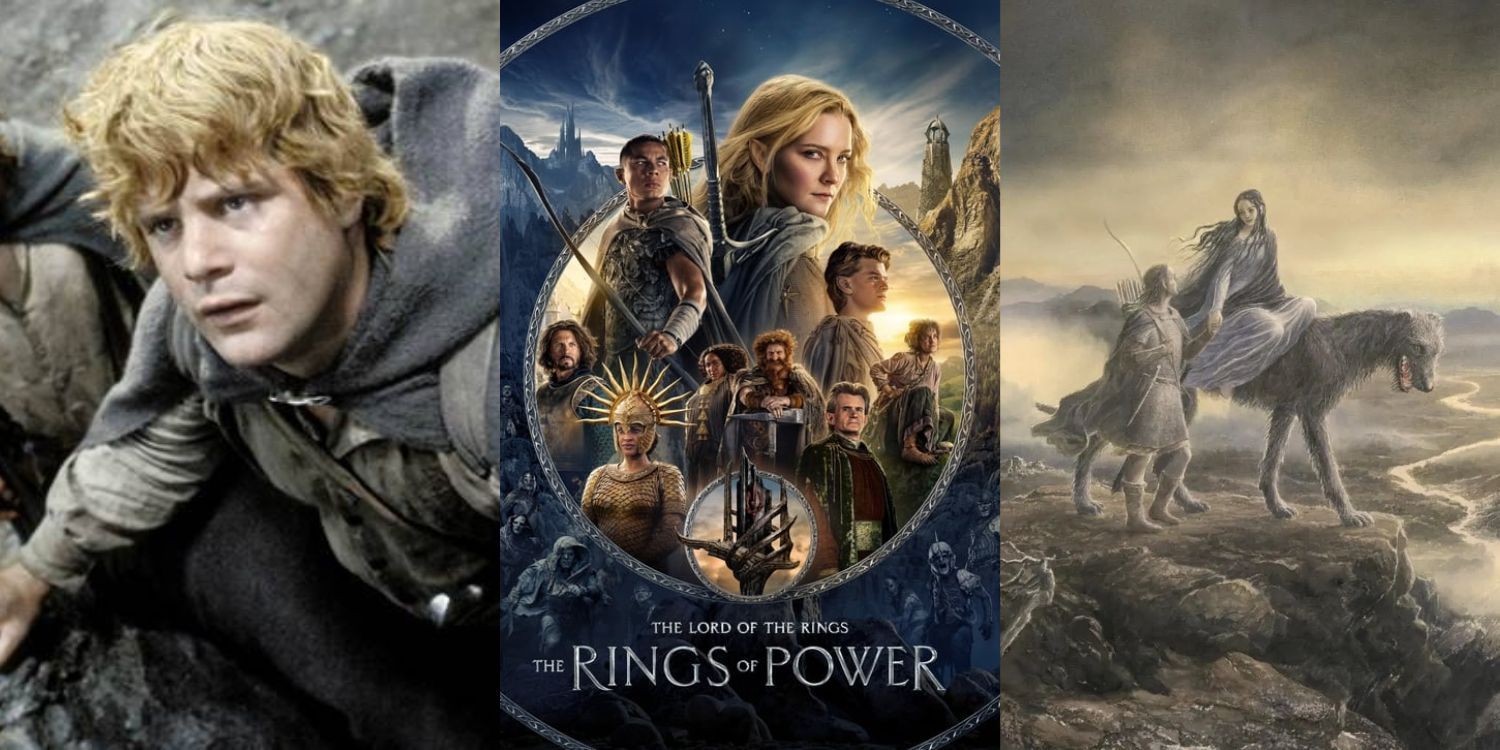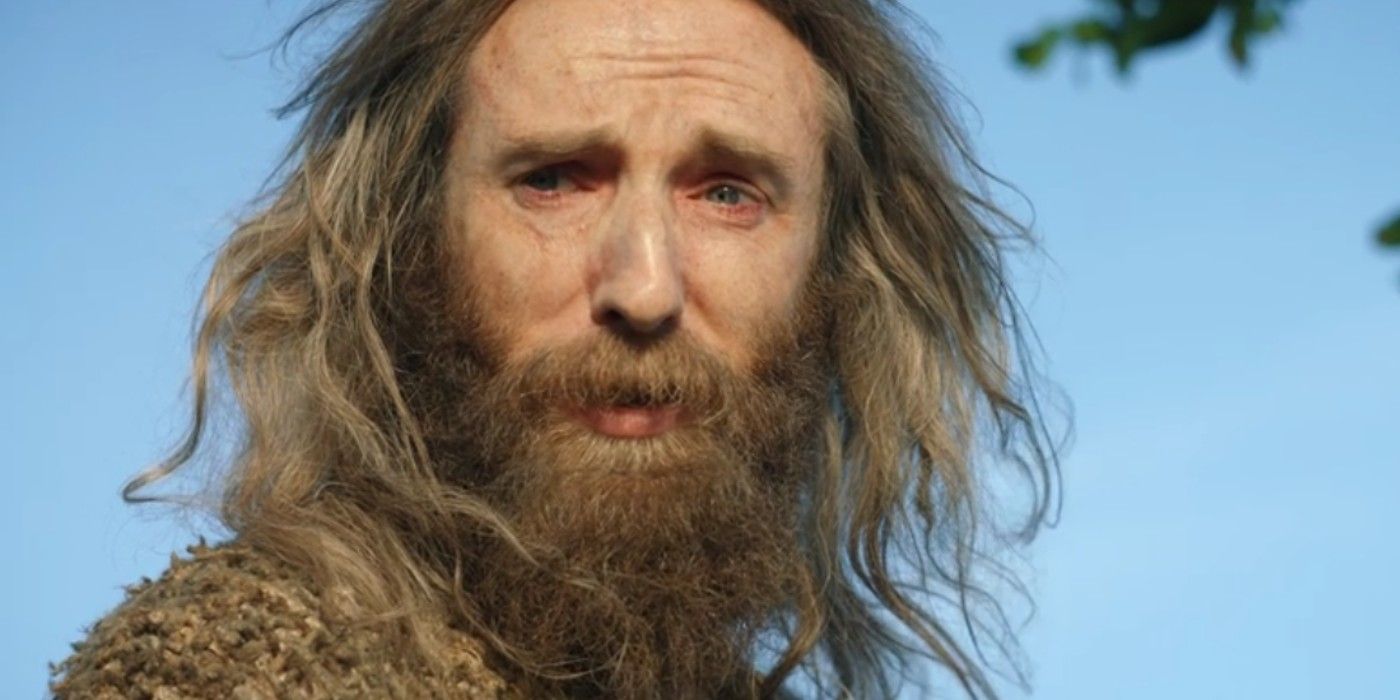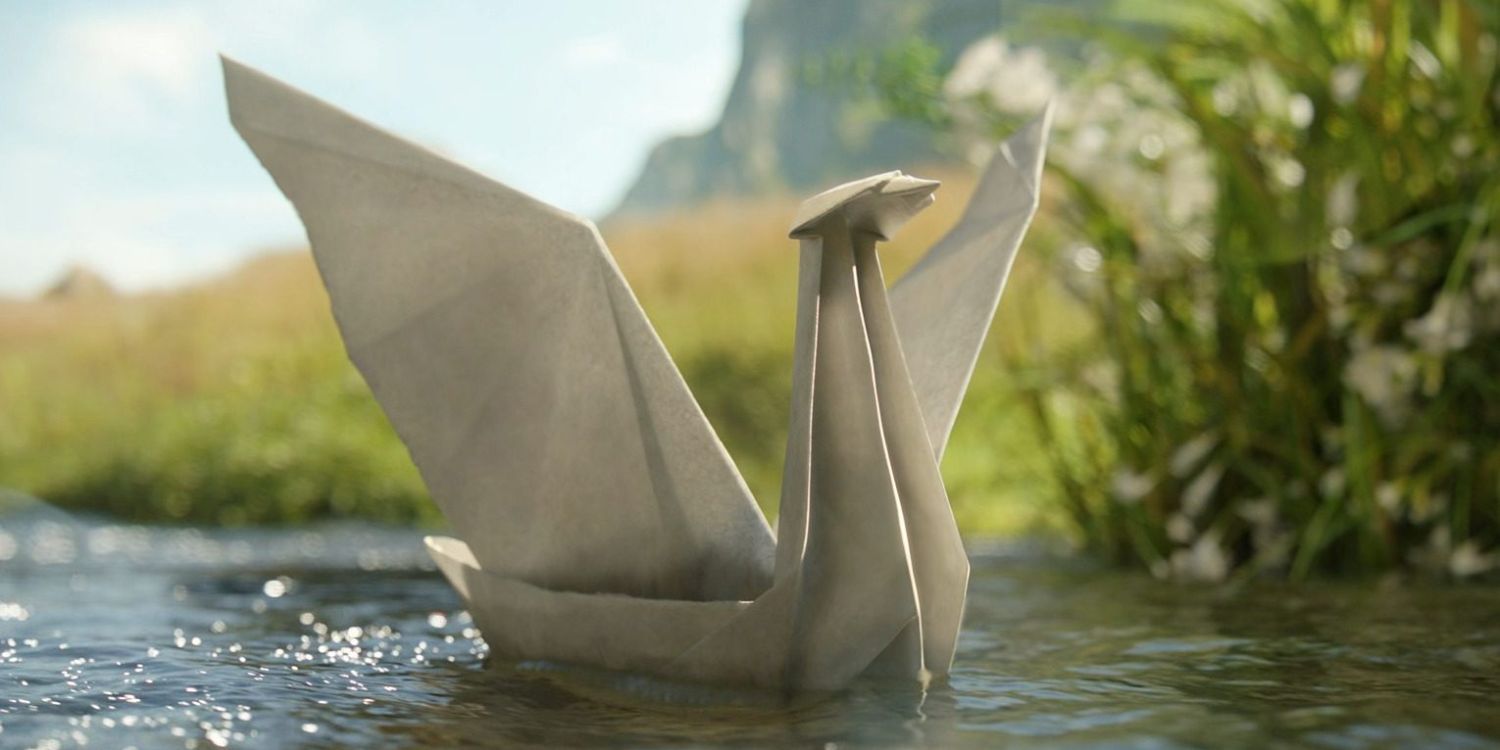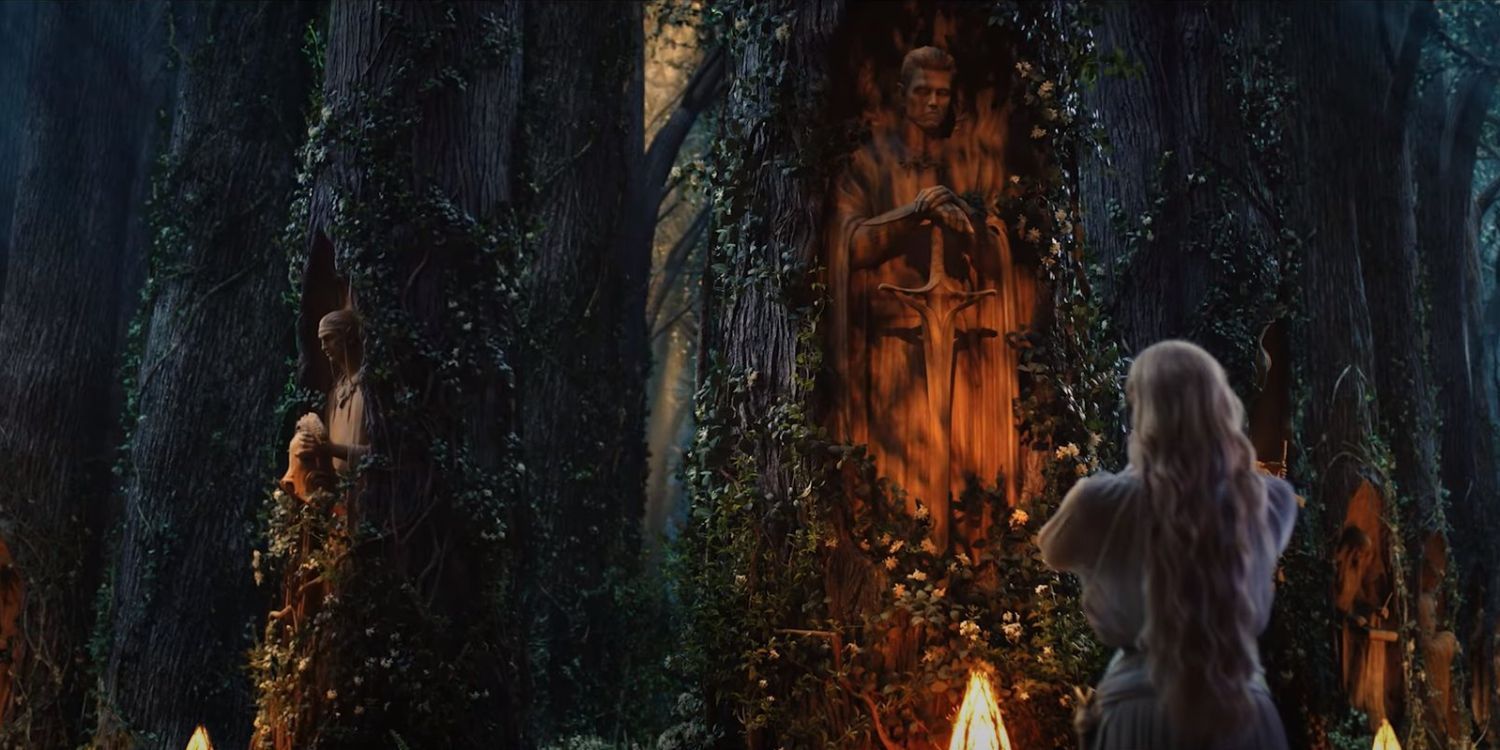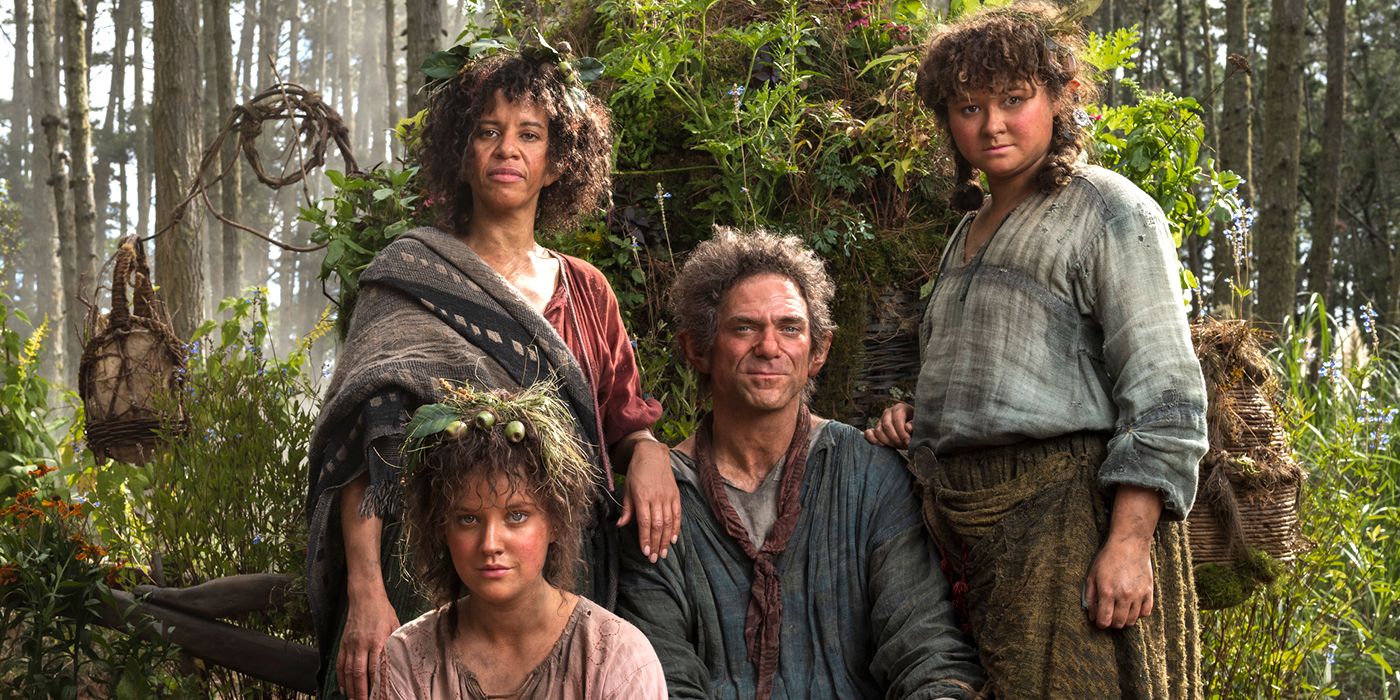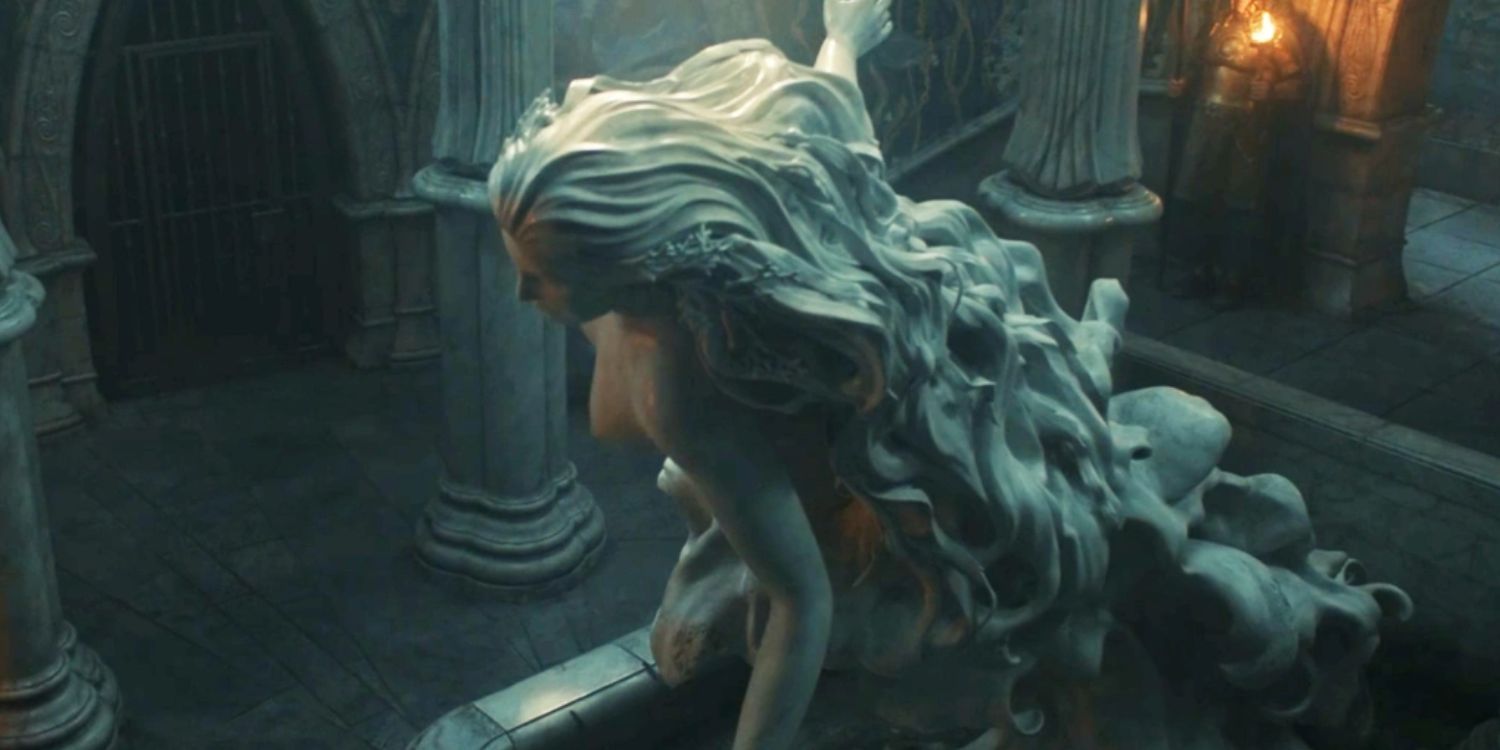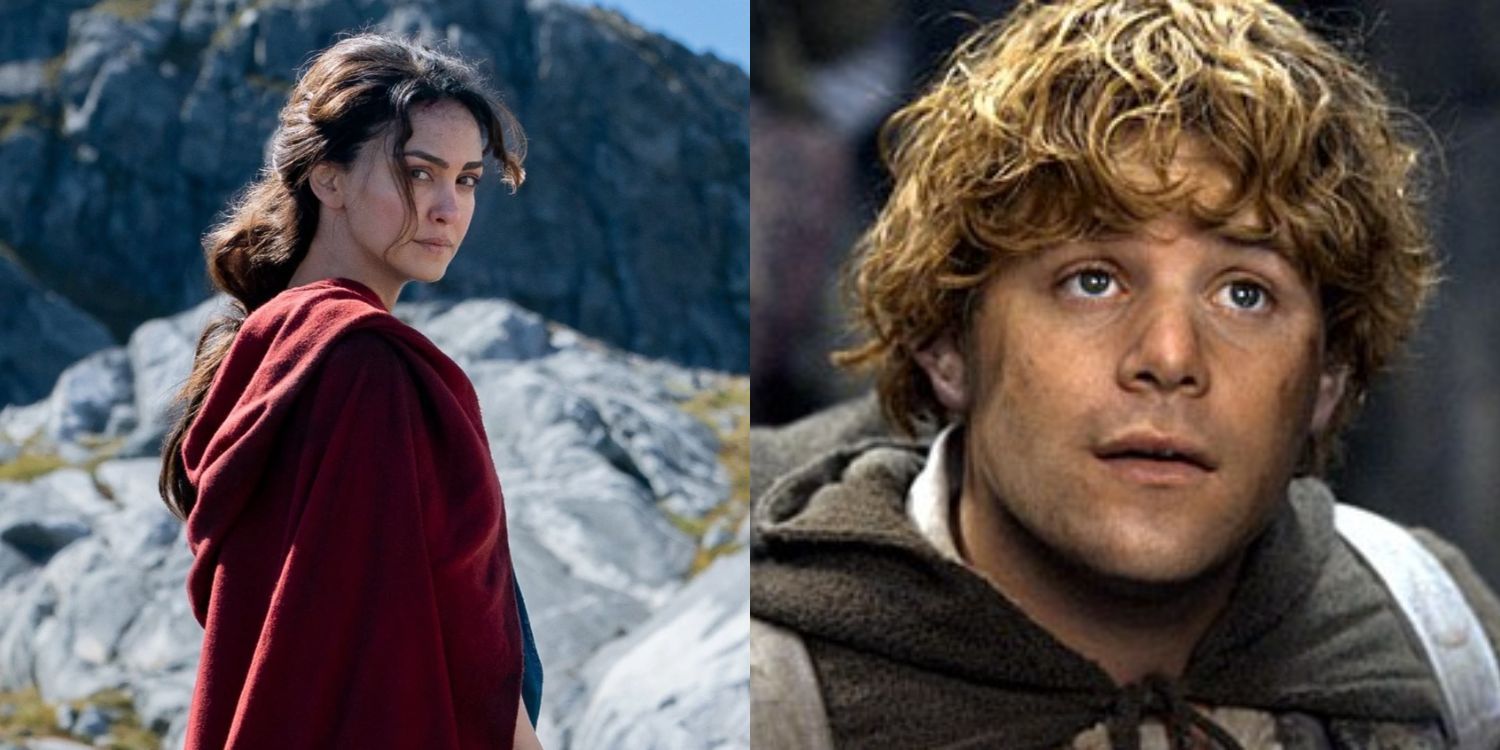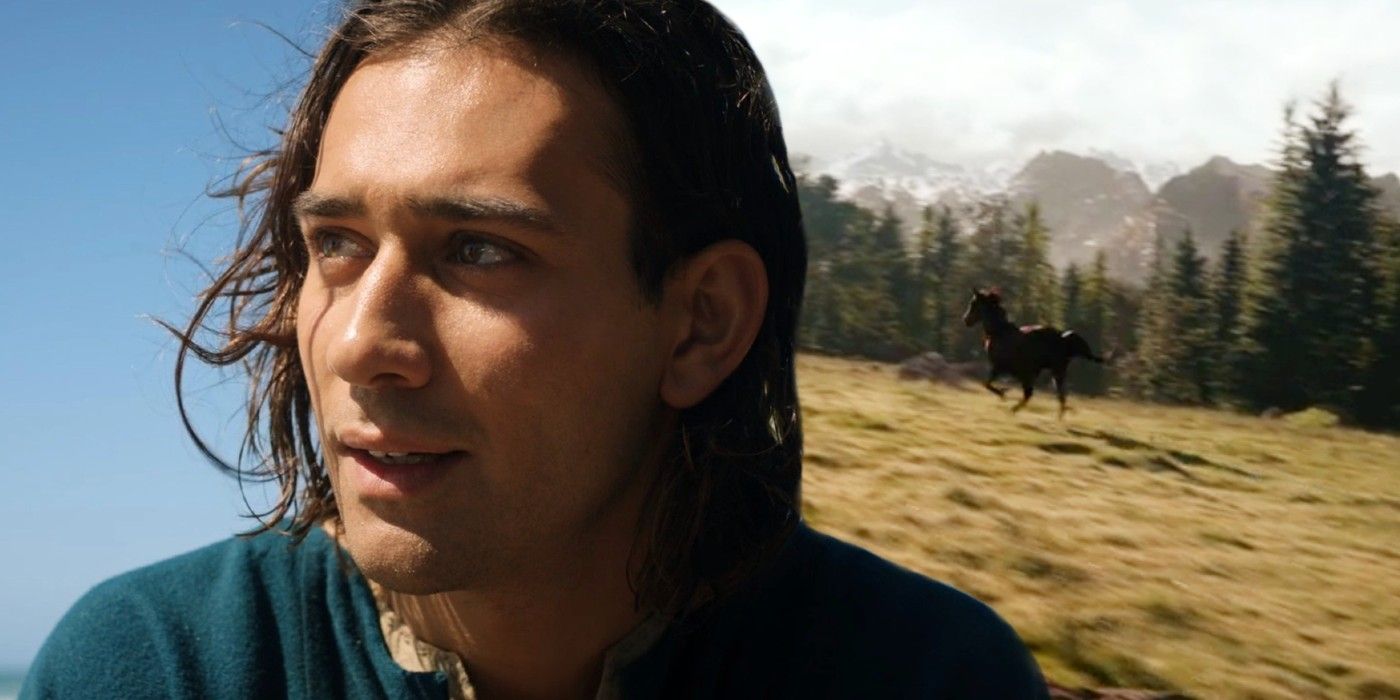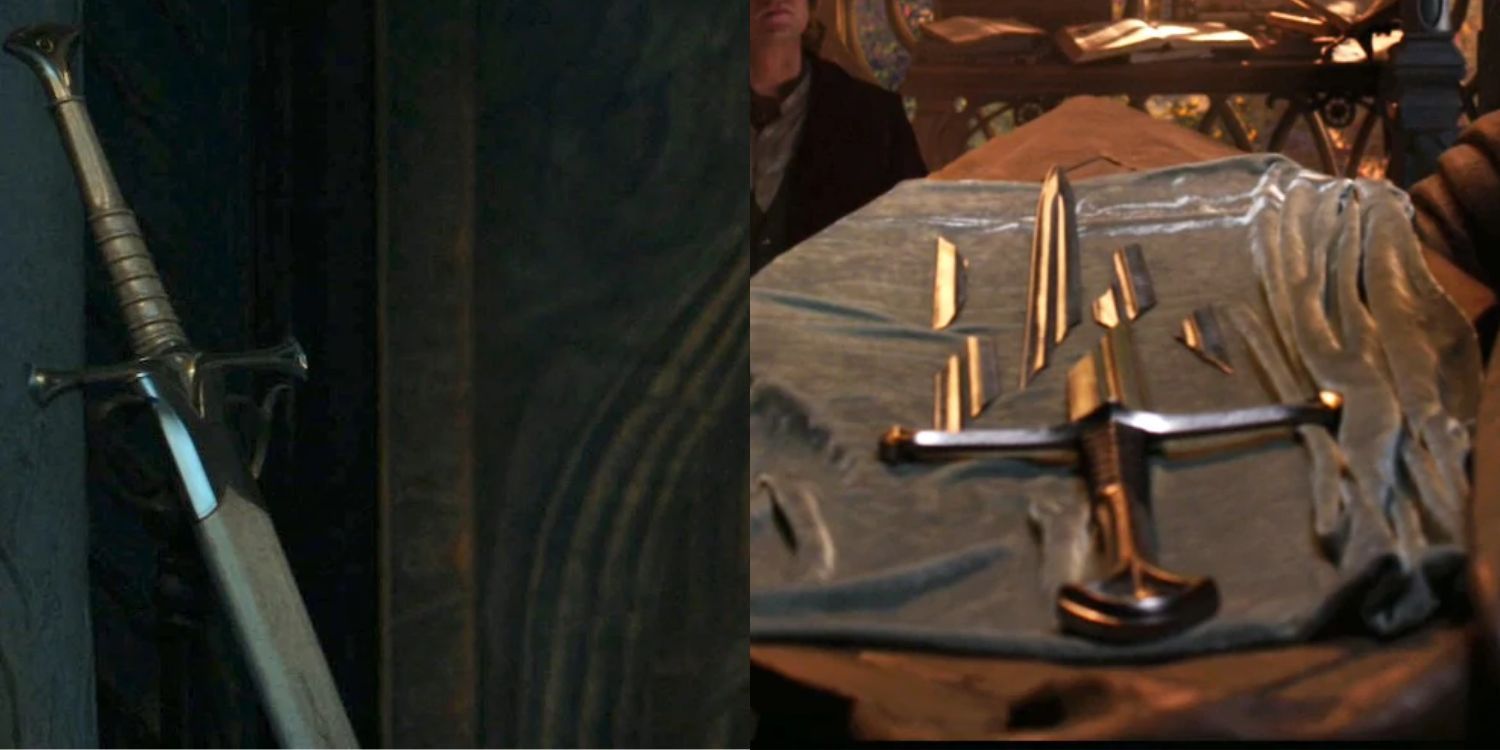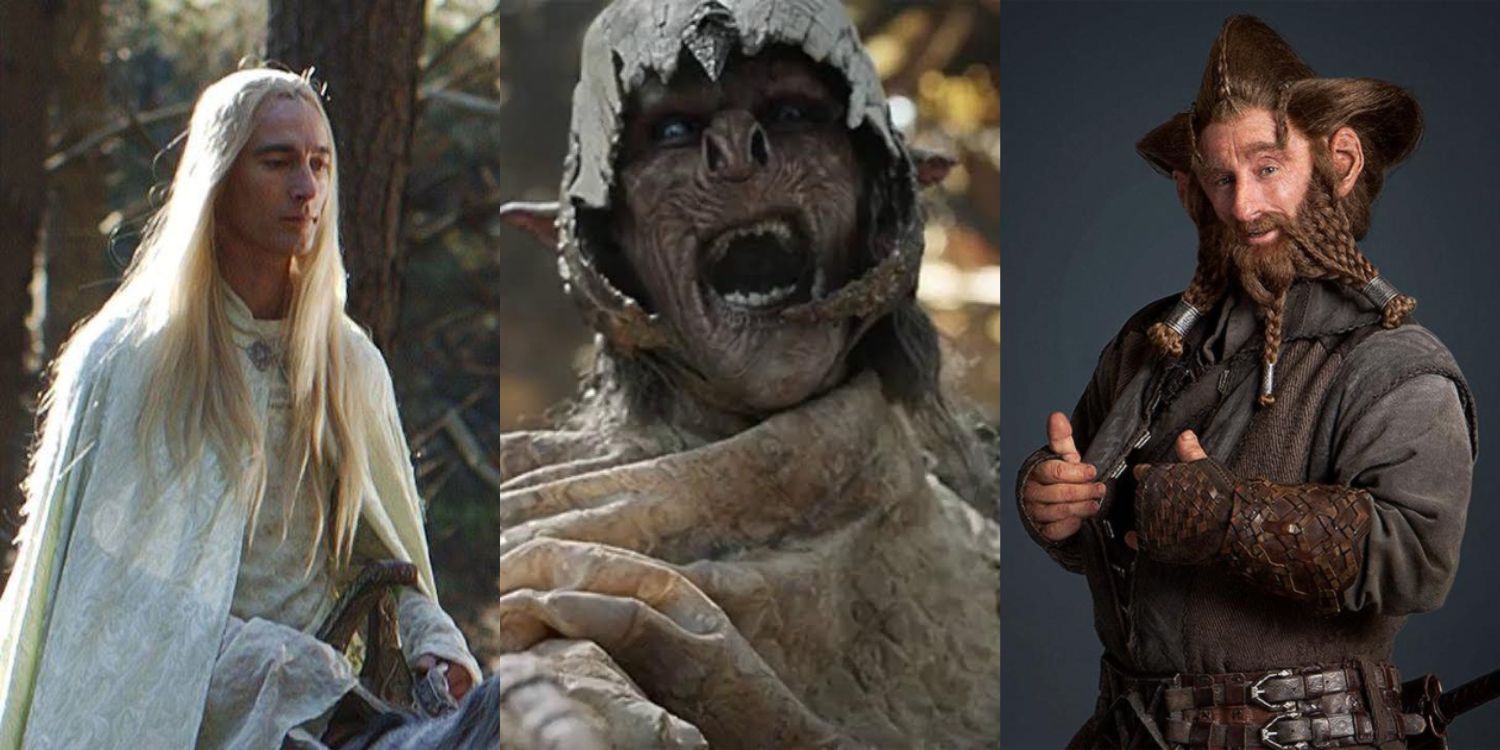Warning! This List Contains Major Spoilers For The First Season of The Rings of Power!After a slow start, The Rings of Power concluded with a shocking banger, and the showrunners already revealed that season 2 will be more canonical to Tolkien's fantasy. Hence, the wait for what's next for Galadriel or Elrond now that they have their rings or what awaits Nori and the Stranger in the East might be long and annoying, but given the quality work put into season 1, season 2 will be worth it.
The stunning visuals, grand score, and nuanced performances have been rightfully celebrated throughout the season as The Rings of Power showcases the lives and tribulations of the Elves, Dwarves, Harfoots, Men, and even Sauron during the Second Age. Digging deeper, the show has been as ripe as The Grove with Easter eggs and hidden details worth appreciating and dissecting, and these are the most intriguing and meaningful of them all.
"Follow Your Nose"
The finale was jampacked with groundbreaking moments and revealed, including an Easter egg that seemingly confirms the Stranger's identity. Since he came falling from the sky like a blazing meteor, fans had concocted Rings of Power theories as to who he could be, such as Sauron, Tom Bombadil, or Gandalf the Grey. The latter is seemingly the correct choice, thanks to the moment when he tells Nori, “when in doubt, Elanor Brandyfoot, always follow your nose.”
That’s a Gandalf quote from The Fellowship of the Rings when he discerns the Fellowship’s best way out of Moria, again smelling the path forward. While The Rings of Power doesn’t actually lead into Peter Jackson’s The Lord of the Rings films, this is a nice and noticeable way to link the two properties together. Another similar Easter egg is the transformation of The Dweller, The Ascetic, and The Nomad seemingly into moths, which Gandalf is known to use in calling the Great Eagles. It could still turn out that he is one of the Blue Wizards who are known to go to the East, but logic points to Gandalf.
Galadriel's Swan-Ships
The Rings of Power begins with a beautiful prologue showing Galadriel, her brother, Finrod, and the Elves in the “far green country” of Valinor before the War of Wrath, the cinematography of which garnered raving reactions on Twitter. This sequence also shows her making a paper boat shaped like a swan which her “friends” sunk. Swan-ships are important not only to Galadriel but to the Elves overall.
In the text, swan-ships are originally associated with the Teleri, one of the main factions of Elves on Valinor. These ships would then be stolen by the Noldor — to which Galadriel and Finrod belong — and were used to shepherd their armies to fight Morgoth and his forces after he destroyed the Trees and stole the Silmarils. Galadriel was aboard another one on her journey back to Valinor, and eventually, she ends up using similar swan-shaped barges in Lothlórien.
The Memorials In Lindon
As always, there are a great many legendary figures mentioned and referenced throughout season 1. In the first episode, some are honored among the memorial grove in Lindon. Along with Finrod, the visages of other storied elves are shown. The most obvious one is for Lúthien, while the other is likely Fingon, who is one of Galadriel’s cousins, Elrond’s great-granduncle, and in one version of The Silmarillion, Gil-Galad’s father.
Lúthien is easily identifiable thanks to her hound, Huan. She is an elf who fell in love with a mortal man, Beren, and they are both incredibly important to the lore. They were mentioned as a warning for Arondir by Médhor, and their love story is similar to the one described by Galadriel for her and her husband, Celeborn. More importantly, Tolkien modeled Beren and Lúthien of his own love story with his wife, to the point that their gravestones are adorned with their respective character.
"Not All Who Wander Are Lost"
Music is rightfully important in The Rings of Power, and it’s not just the incredible score by Bear McCreary. Nori’s adopted sister, Poppy Proudfellow, is the resident muse for the Harfoots, which explains why she is one of the most likable characters in The Rings of Power. In episode five, she sings one song with deep meaning for The Lord of the Rings fans. Her song includes the famous line, “not all who wander or wonder are lost” which comes directly from “The Riddle of Strider” in The Fellowship of the Ring.
Dissecting the line is quite interesting as, in The Rings of Power, the Harfoot culture is all about not wandering away or wondering what else there is out there. They will leave even their most beloved behind if they wander off trail. However, as shown in the scene, the song — and the line specifically — are about Nori. She is an adventurer, destined for big things in the great wide world, and in the finale, that destiny is right before her as she leaves her family behind to join the Stranger on his adventure to the Rhûn.
The Lady Of The Seas
When Galadriel and Halbrand arrive in Númenor, they are greeted by giant statues like the Argonath in The Fellowship of the Ring. One is of Ulmo, the Vala of the Great Seas – an ocean god important to Númenorean culture – and the other is Eärendil the Mariner with Elwing, two legendary figures and Elrond’s parents. However, a more intriguing Easter egg presents itself later when Galadriel visits Halbrand in his cell. It’s a smaller yet still quite a large statue of Uinen, a minor sea goddess.
This is an interesting inclusion that holds some deep meaning. By this time, Númenor had largely abandoned their reverence for the gods and Elves, and as the Vala of calm seas, Uinen is someone that the Númenoreans would want to honor, yet they stuck her down with the criminals.
Beings Becoming Stars
Importantly, Eärendil and Elwing are Elrond and his twin brother Elros’ parents, which is why they're being honored on Númenor since Elros was their first king. Eärendil is the half-elf prince of Gondolin who wed Elwing, half-elf granddaughter to Beren and Lúthien. Elwing possessed one of the Silmarils and was transformed into a bird by the Vala Ulmo. They traveled to Valinor from Middle-Earth, with Eärendil becoming the first mortal to set foot on the sacred land, and they recruited the Vala to defeat Morgoth.
When Elrond speaks of them, Sadoc also makes a reference to them, claiming he’s heard of men becoming stars, not stars becoming men. This acknowledges the fact that Eärendil is essentially turned into a god, sailing the Void for all time guarding Arda, the Sun, and the Moon with a Silmaril. The Star of Eärendil would later save Frodo and Sam from Shelob in The Return of the King.
Bronwyn's Wise Words
Speaking of Samwise Gamgee, he got a nod in The Rings of Power's episode 6. Theo asks his mother, Bronwyn, to tell him what he would always tell him when he had nightmares. She would say, “In the end, this shadow is but a small and passing thing. There is light and high beauty forever beyond its reach. Find the light, and the Shadow will not find you.” Not only is this a touching and inspiring line, but Sam says nearly the exact same thing.
In Jackson’s films, this comes in The Two Towers when he, Frodo, and Gollum are in Osgiliath. However, in the original text, it happens in The Return of the King, describing the strong and piercing light of the Star of Eärendil as it baths them with its clear and cold light. This is not the only time that The Rings of Power took directly from The Lord of the Rings, but this is the most extensive, and in this new context, it is still beautiful and poignant.
"I Like the Mountains"
There are some special and much-needed pockets for humor and comedy within The Rings of Power, like Durin and Elrond’s joking relationship or Isildur’s whole persona. The young man will become the most important person in this tale in time when he defeats Sauron. His future has been foreshadowed several times in Rings of Power, like when he is told by his friend Valandil, “One day, I hope you find something that you would be willing to sacrifice anything for.”
On a more lighthearted note, he makes a funny reference to his future in episode six when surveying the land with Valandil and simply says, “I like the mountains.” It’s innocent and a throw-away, but as The Lord of the Rings fans know, he’ll grow to love them since he’ll create the Kingdom of Gondor and a fortress called Minas Ithil within those mountains. Minas Ithil would eventually become Minas Morgul, home to the Nazgûl – meaning Shelob might be lurking nearby.
Legendary Weapons And Relics
The Lord of the Rings made several fantasy tropes famous and essential, like the fact that every king needs a legendary blade. For Isildur, and later his descendent, Aragorn, they have Narsil. Some fans initially thought that this would be the sword given to Elendil by Queen Míriel in episode three and that it just has a different design than that from the Jackson films. However, in episode four, that blade – or a seemingly identical one – was seen hidden away still in the Queen’s possession.
As she and Elendil return to Númenor in the finale, fans will likely see him claim it in season 2. Two weapons are shown in this sequence, including Dramborleg and the Swan Shield, both of which were wielded by Tuor, Eärendil’s human father. Other relics that were shown throughout the season include Durin’s Axe and the Dragon Helm of Dor-Lomin in Khazad-Dûm.
Jed Brophy
The Rings of Power continues a fun tradition that first started with The Fellowship of the Ring in 2001. In nearly every single subsequent journey to Middle-Earth, Jed Brophy has appeared, including The Rings of Power. He was one of the Nazgûl at first, then he played various orcs, an elf, and a Rohan Rider alongside Éomer. In The Hobbit trilogy, he was one of Bilbo’s Dwarf companions, Nori.
In The Rings of Power, he returns as several orcs, including Vrath, the orc who nearly kills Theo when he sneaks back into Tirharad to get food. Funnily enough, The Return of the King is the only exception, but his son did appear as Aragon’s son Eldarion. It’ll be fun to see who he might play in a future season of The Rings of Power.
Join Amazon Prime - Watch Thousands of Movies & TV Shows Anytime

